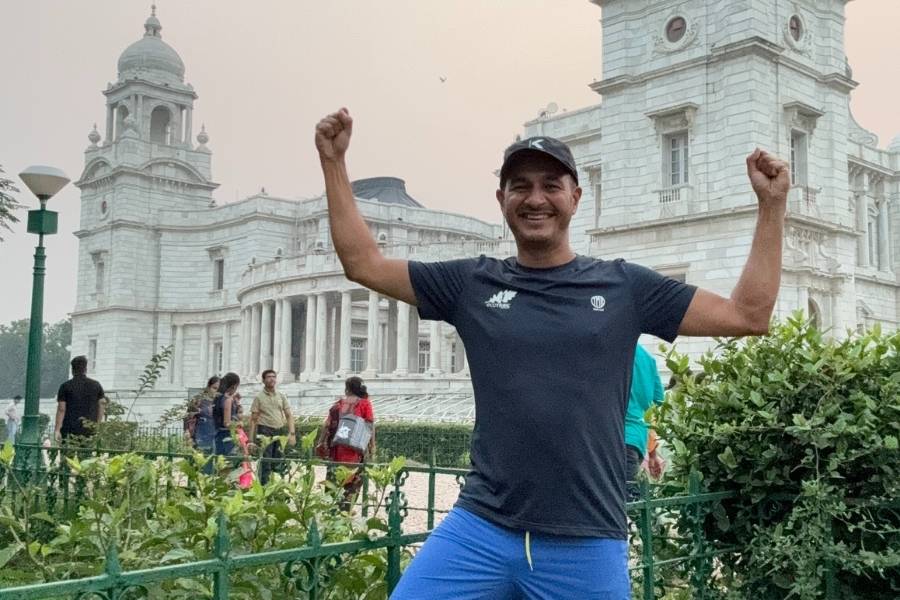Almost 50 years ago, Henrik Alvstråle’s journey started in an orphanage in Gariahat. Not long after, life took him to Gothenburg, Sweden. Last month, a serendipitous tattoo brought him back to Gariahat.
Born Kanishka Barik in 1977, Henrik was left outside an orphanage established by poet and novelist Maitreyi Devi, set up to accommodate refugees in the aftermath of the 1971 Bangladesh War. “I spent the first nine months of my life there. A Swedish lady, who was working with an adoption agency, visited the orphanage to take a girl named Rani back to Sweden. She saw me at the orphanage too, and sent my pictures to a couple in Sweden, who would go on to become my parents,” he reminisces.
Soon enough, Kanishka became Henrik. “I went to school and college in Sweden, and all my friends were Swedish. Given the desire to fit in, perhaps some part of me denied my Indian roots and stepped away from this part of my identity,” he confesses.
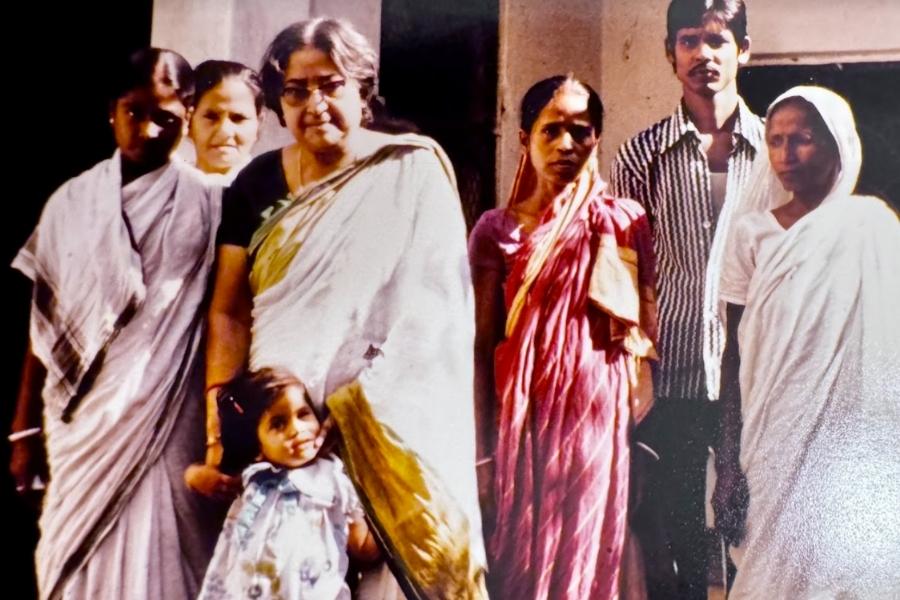
Henrik spent his first nine months in the care of poet and novelist Maitreyi Devi
But one can only ignore their roots for so long. As a teenager, Henrik was overcome with the burning question of his ancestry, and wrote a letter to Maitreyi Devi in 1990, looking for answers. “She sent me a beautiful reply, acknowledging how hard it must be to not know my background, while advising me to accept their untraceability. She asked to put it behind me, and focus on what was ahead.”
Henrik did just that. He went on to work at Ericsson’s Shanghai office and became a marketing director. “I created the perfect life, with lots of money and a fancy car. On the surface, I had everything associated with success. But inside, it felt hollow.”
Reconnecting with his roots
As the years passed, India shifted to an almost-forgotten part of his memory. That is, until 2013. “An Indo-Swedish friend of mine invited me to his wedding in Delhi. I was a bit scared and didn’t know what to expect, but decided to make a trip out of it by visiting the Taj Mahal too. It was so comforting to see that everyone looked like me. People smiled at me wherever I went. I truly felt like I belonged here.”
The seed from India continued to germinate in his heart over the next decade. Last year, in pursuit of spirituality, Henrik found solace in yoga and meditation. Naturally, India became an important pitstop, and he went to Rishikesh for a yoga retreat. “Yoga was extremely important to my personal development journey, and helped me attract a lot of positive energy. But somehow, I still didn’t have the courage to visit my birthplace. While leaving India last November, I promised to come to Kolkata on my next visit,” he recounts.
Henrik confesses that for years, he had pushed back the idea of visiting the city, despite wanting to reconnect with it. Had it not been for yoga, he may never have overcome this barrier. “I feared that coming to Kolkata would bring about fears that I didn’t even know existed. My spiritual journey brought me amidst nature and gave me unparalleled peace. While flying out of Rishikesh, I left with the strength to face my fears and connect with my inner self.”
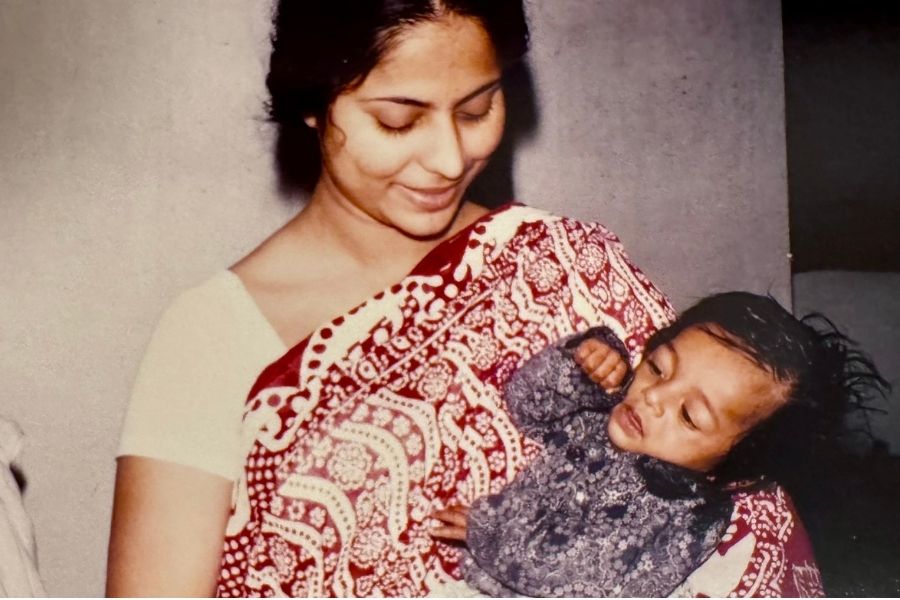
The only remnant Henrik had from his Kolkata days was this picture from 1977, being held by Maitreyi Devi’s daughter-in-law, Rupa
A serendipitous homecoming
The final push though, was pure serendipity. While holidaying in a resort in Sweden a few months ago, Henrik got chatty with an Indian tourist and spotted a tattoo of the initials, ‘MCRA’ on his arm. When he asked what it signified, the tourist revealed that it was an acronym that stood for, ‘Make Calcutta Relevant Again’.
The person with the tattoo was Meghdut Roy Chowdhury, the founder of MCRA. “Henrik was amazed by the connection, and told me about how he was born in Kolkata and had always wanted to come back. I invited him for the festive season, and promised to connect him to the NGO that he had been adopted from,” Meghdut shares.
Henrik had already planned a yoga retreat in Rishikesh last November. He knew that the universe was giving him a sign, and it was finally time to come home. “I wanted to learn more about Kolkata and explore the city where I spent my first few months. But beyond that, I had no expectations,” Henrik reminisces.
The serendipity didn’t end with meeting Meghdut in Sweden. “Henrik landed in Kolkata on the day of my Diwali party! I invited him to join in, and at the party, two of my friends were so moved by his story that they decided to help him find the orphanage where he was raised,” Meghdut adds.
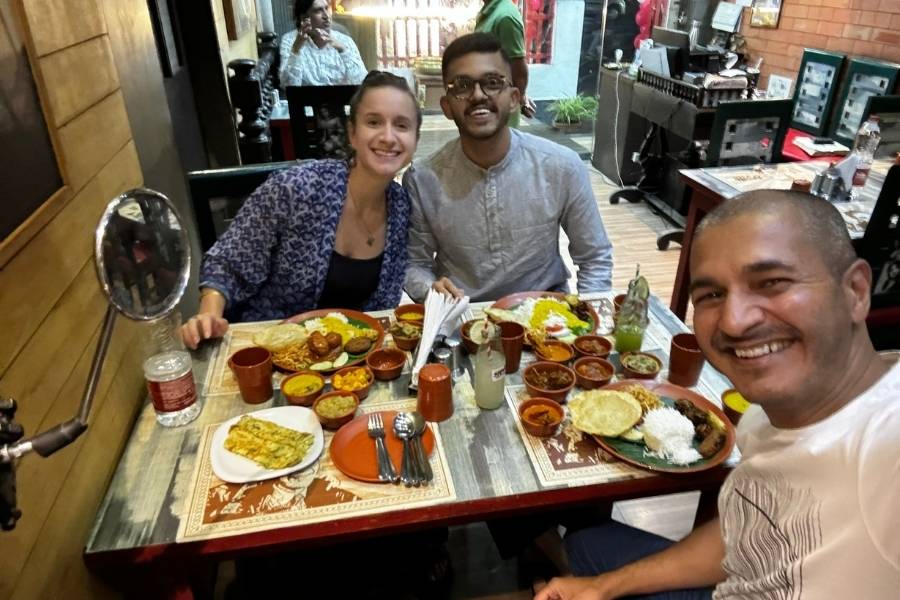
A chance encounter with MCRA founder Meghdut Roy Chowdhury brought Henrik to Kolkata, and he enjoyed authentic Bengali food with Meghdut and his wife Pauline
Rewriting the past
The trio finally located the childcare centre as Khelaghar Ashram in Madhyamgram. They also secured a meeting with Maitreyi Devi’s son, who, along with his wife, would tend to the newborns. They told him about how the space was set up in the aftermath of the war, while newborns like him were raised in Maitreyi Devi’s own home. “Last month, after more than four decades, I entered the same room where I spent my first few months,” Henrik beams.
Coupled with this resolution, he also enjoyed exploring Kolkata for the first time, that too on Diwali. “Victoria Memorial was a must-visit on my itinerary. I explored the streaks, soaking in the energy of the people and consuming a lot of biryani in the process. I also decided to dress in Indian wear during my time in India because I felt so attached. I now know why people say that coming to Kolkata is like receiving a warm hug.”
His Kolkata trip was followed by a stay at Rishikesh, where he yet again immersed himself in the healing power of yoga. Growing up in Sweden, Henrik had rationalised his abandonment with the narrative that if he had stayed on in India, he would have had a very tough life, either ending up on the streets or worse. The narrative was a way for him to feel grateful for his life in Sweden.
“But the Kolkata house was beautiful. It had a lot of warmth, joy and kindness, and made me sad, thinking about what if I could have had a nice life here.” It was yoga which again brought him respite, helping him rewrite the first chapter of his life.
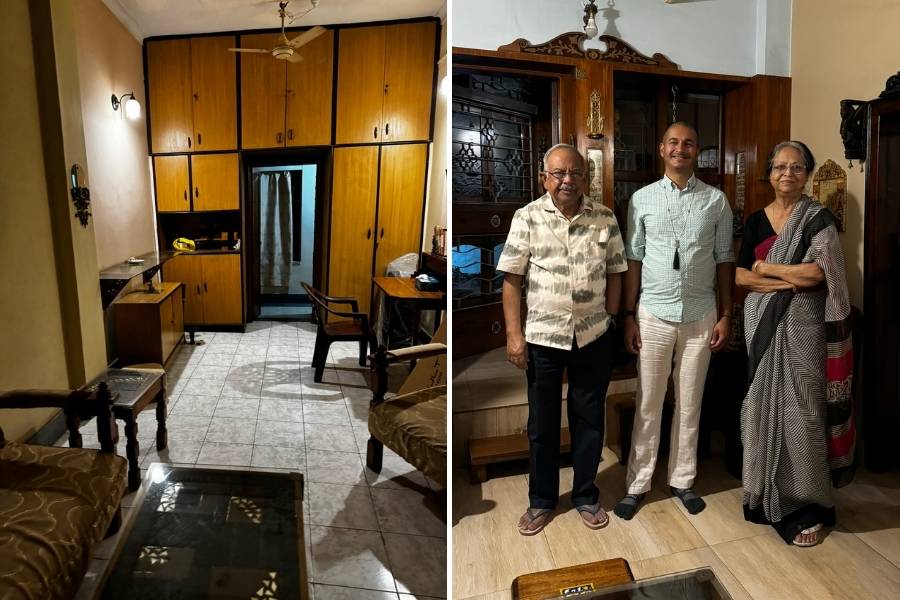
During his Kolkata trip, Henrik had the chance to (left) visit the room where he spent his first nine months, and reconnect with Maitreyi Devi’s son, Priyesh and daughter-in-law, Rupa
But Henrik isn’t done with India yet. He sees this trip as the start of a long, renewed association with his birth nation. He’s already in the process of planning another trip to Rishikesh next summer, hoping to train as a yoga teacher. Kolkata will, of course, be a mandatory pitstop. “I still have my Indian passport, which recognises me as Kanishka Barik. I now plan to apply for the Overseas Citizen of India (OCI) card too,” he adds.
One of his bigger plans is to set up a collaborative business between India and Sweden, as a means to build a bridge between the two nations. For now, Henrik has already started reducing this gap. “Since he left, he has been reaching out to dozens of people across Sweden and Denmark who were adopted from the same NGO, and is trying to help them find closure. It’s incredible that all of this happened, just because I have a tattoo on my arm,” chuckles Meghdut.
“Coming to Kolkata gave me the missing piece to my puzzle, and allowed me to finally accept my story. After years of resentment, this city is not a bad place in my heart anymore. My last India trip was the culmination of a journey that started 10 years ago.”
If you wish to support Henrik in tracing his ancestry or finding his family in Kolkata, you can reach out to him on Instagram at @henrikalvstrale
